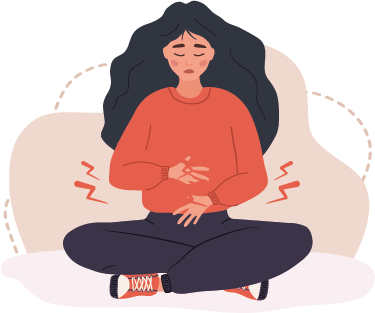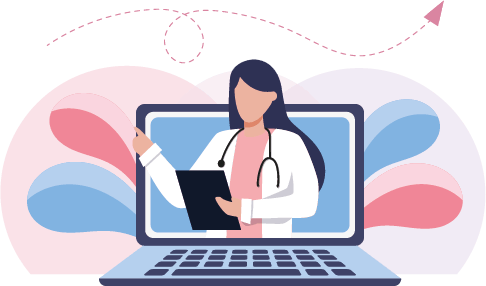PMS - Premenstrual Sendrome


What is Premenstrual Sendrome (PMS)?
Premenstrual syndrome (PMS) encompasses clinically significant somatic and psychological manifestations during the luteal phase of the menstrual cycle, leading to substantial distress and impairment in functional capacity.
In the days leading up to their period, many women experience abdominal pain or a headache, are sad and irritable or feel bloated and generally uncomfortable. The medical term for this is “premenstrual syndrome” (PMS), also known as “premenstrual tension” (PMT).
PCOS is a problem with hormones that affects women during their childbearing years (ages 15 to 44). Between 2.2 and 26.7 percent of women in this age group have PCOS.
Many women have PCOS but don’t know it. In researches up to 70 percent of women with PCOS hadn’t been diagnosed.
PCOS affects a woman’s ovaries, the reproductive organs that produce estrogen and progesterone — hormones that regulate the menstrual cycle.
Gudipally PR, Sharma GK. Premenstrual Syndrome. [Updated 2021 Nov 14]. In: StatPearls [Internet]. Treasure Island (FL):
StatPearls Publishing; 2022 Jan-. Available from: https://www.ncbi.nlm.nih.gov/books/NBK560698/
InformedHealth.org [Internet]. Cologne, Germany: Institute for Quality and Efficiency in Health Care (IQWiG); 2006-.
Premenstrual syndrome: Overview. [Updated 2017 Jun 15]. Available from: https://www.ncbi.nlm.nih.gov/books/NBK279265/
PMS Symptoms
Cyclic changes in hormones. Signs and symptoms of premenstrual syndrome change with hormonal fluctuations and disappear with pregnancy and menopause.
Chemical changes in the brain. Fluctuations of serotonin, a brain chemical (neurotransmitter) that's thought to play a crucial role in mood states, could trigger PMS symptoms. Insufficient amounts of serotonin may contribute to premenstrual depression, as well as to fatigue, food cravings and sleep problems.
Depression. Some women with severe premenstrual syndrome have undiagnosed depression, though depression alone does not cause all of the symptoms.
https://www.mayoclinic.org/diseases-conditions/premenstrual-syndrome/symptoms-causes/syc-20376780

Headache

Nausea

Acne

Abdominal Pain

Constipation

Insomnia

Back Pain

Increased Appetite

Sensitive Breast

Abdominal Bloating

Fatigue

Diarrhea

Headache

Nausea

Acne

Abdominal Pain

Constipation

Insomnia

Back Pain

Increased
Appetite

Sensitive Breast

Abdominal
Bloating

Fatigue

Diarrhea

How is PMS Diagnosed?
PMS is diagnosed based on physical symptoms (eg, bloating, weight gain, breast tenderness, swelling of hands and feet). Women may be asked to record their symptoms daily.



